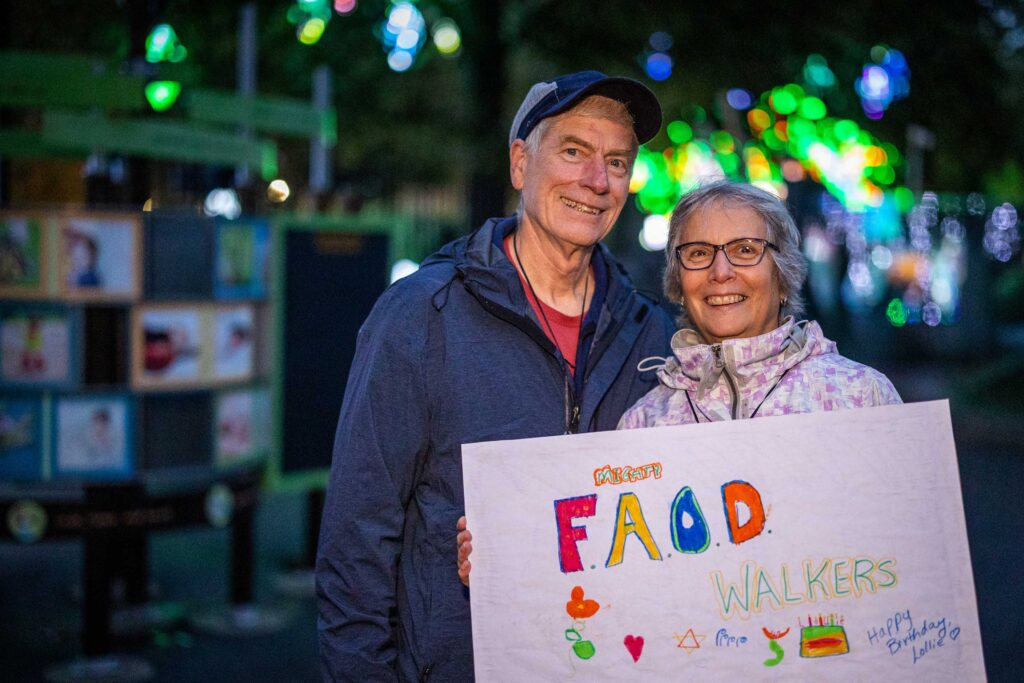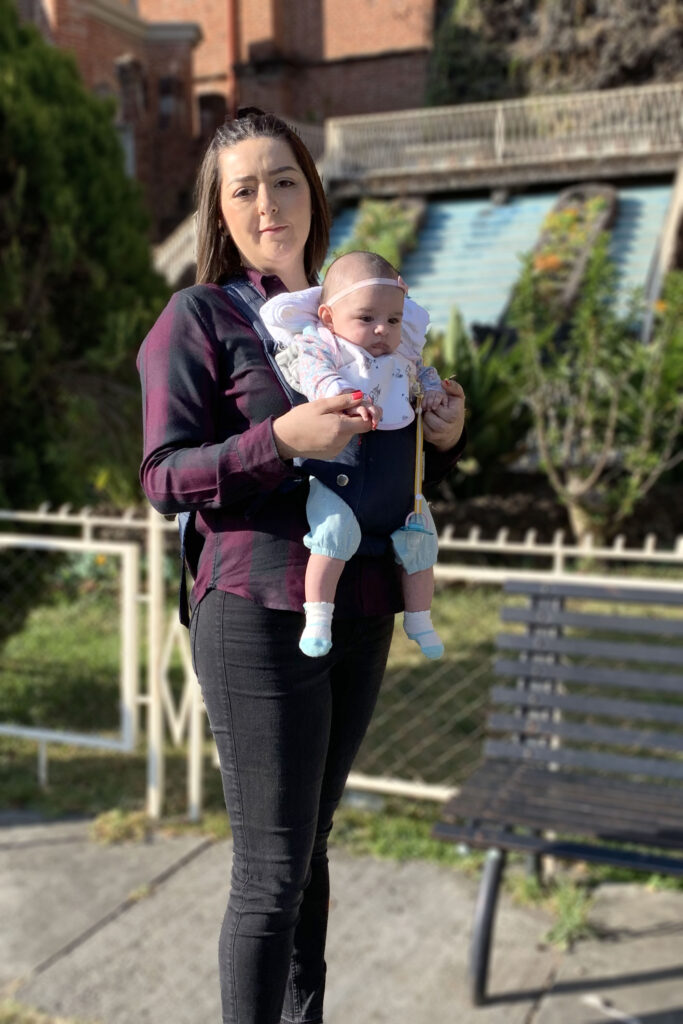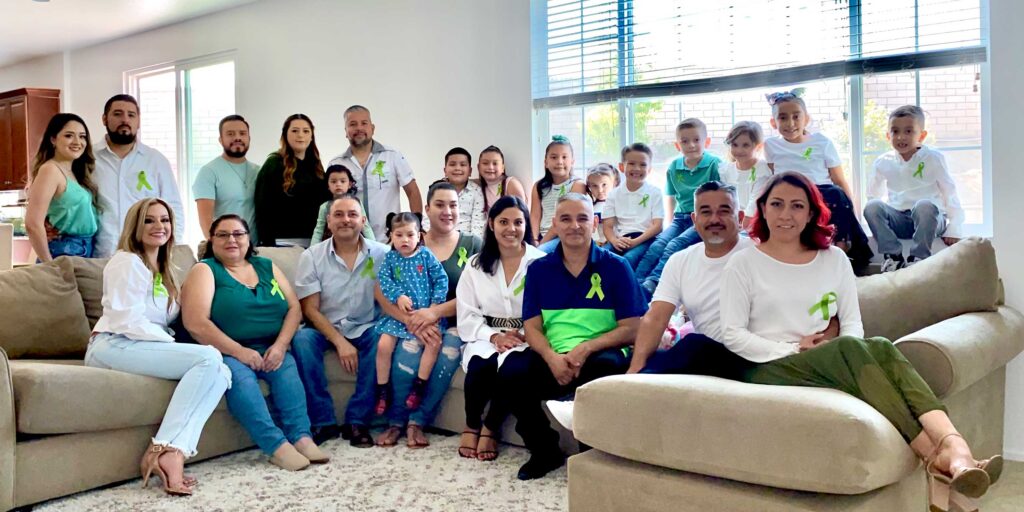MitoAction Energy Walk — Riverside, CA
Join us to raise awareness and funds for mito—one step at a time!

Date & Location Coming Soon
Get ready to lace up your sneakers and join us for a day of camaraderie, inspiration, and community spirit at the newest addition to MitoAction’s Energy Walk series: Riverside, CA! Hosted by Griselda Macario, this event is not just about crossing the finish line, but about making a difference in the lives of those affected by mitochondrialRelated to the mitochondria. disease. Whether you’re a seasoned runner, a casual walker, or simply looking for a day of fun-filled activities, there’s something for everyone at Energy Walk Riverside. Join us as we stride towards a brighter future, one step at a time.
Meet Griselda Macario

My name is Griselda Macario, and I am reaching out to share my story, raise awareness about mitochondrial disease, particularly TK2d, an ultra-rare genetic disorder that has deeply impacted my life, and ask for your partnership in the 2024 MitoAction Energy Walk Riverside.
I was born in California in 1993. In 2019, at the age of 26, I was diagnosed with TK2d. Although there is no cure for this disease, finally understanding the cause of my symptoms was a significant relief. TK2d affects all muscles in the body. I have been gradually losing strength in my arms, legs, neck, and torso, as well as my facial, chest, and esophageal muscles. Despite these challenges, I maintain a positive outlook and find ways to adapt to continue enjoying life. The support and love from my husband, daughter, family, and friends motivate me to share my journey with TK2d.
Growing up, I was never the athletic type. I struggled with running, often finishing last in school races, and found physical activities like pull-ups, sit-ups, and push-ups incredibly challenging. Despite my academic success as a straight-A student, I knew something was off when I couldn’t shoot a basketball or pitch a volleyball like my peers. In high school, my physical struggles persisted, and I noticed increasing difficulty with everyday activities like climbing stairs or boarding the school bus. During college, my strength continued to decline, though it wasn’t as noticeable as I managed to maintain a normal daily routine. Occasionally, my legs would give out without warning, leading to embarrassing falls.
Reflecting on these experiences now, everything makes sense. I enjoyed dressing up, wearing heels, and dancing. However, around ages 20-21, I began to struggle with these activities. Wearing heels became difficult, and walking or climbing stairs in them was no longer easy. Dancing all night turned into getting worn out and out of breath after just a few songs. My arm strength also diminished. Despite voicing my concerns to my primary care doctors, initial tests for thyroid issues and rheumatoid arthritis came back normal.
My weakness was initially attributed to a lack of exercise despite my busy school and work schedule. My husband even bought gym equipment for me, but the muscle weakness persisted. In 2018, at the beginning of my pregnancy, I raised my concerns with my OBGYN. A quick physical exam confirmed that something was indeed wrong, marking the start of my diagnostic journey. I transferred my care and quickly saw a neurologist, a rheumatologist, and a geneticist. Throughout my pregnancy, I underwent numerous tests to find an answer. Conditions like Muscular Dystrophy, Myositis, and LupusA disease that occurs when the body's immune system attacks your own tissues and organs. Lupus induced inflammation can affect many different body systems including your joints, skins, blood cells, br were ruled out. A muscle biopsy revealed tissue necrosis, leading to genetic testing.
Despite the muscle weakness, I had a successful delivery and welcomed a healthy baby girl. My CPK levels continued to rise, and treatments with methotrexate and prednisone were ineffective. IVIG therapy was the next option, but before starting it, the genetic test results arrived, confirming TK2d. This diagnosis brought mixed feelings: relief in knowing it wasn’t all in my head, but frustration due to the limited information on TK2d.

I am hosting this walk to raise awareness about mitochondrial disease. Although TK2d is an ultra-rare genetic condition, there are several types of mitochondrial diseases. Increasing awareness can help medical professionals look beyond the more common diseases and understand the visible and invisible struggles faced by individuals like me. Funding for further research and support is crucial for the patient community, who fight daily in hopes of treatment, improved care, and a better quality of life.
Thank you for your time and support.
Sincerely,
Griselda Macario
Thank You Sponsors and Donors!











